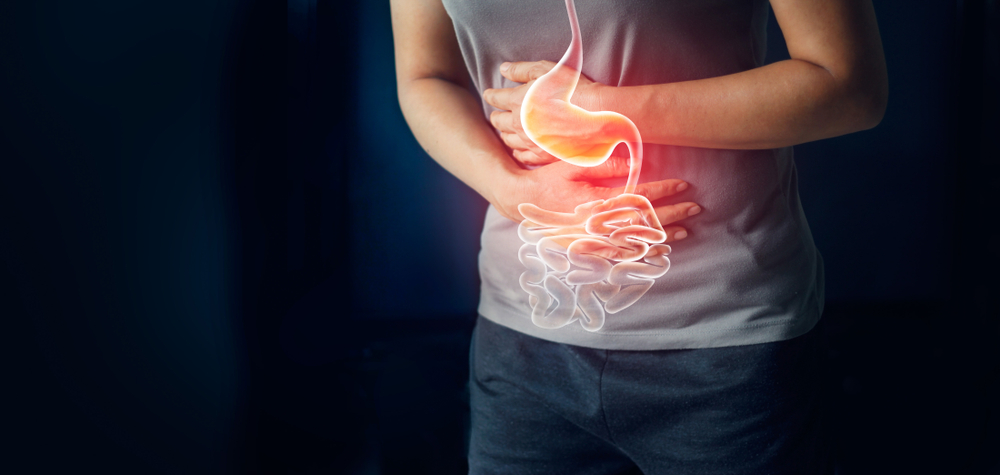Ayurvedic GI Relief: Leech Therapy for Better Digestion Featured Snippet Summary: According to Ayurveda leech therapy may help digestion by improving blood circulation and reducing intestinal inflammation although scientific support is scarce and infection risks remain. Introduction: Leech Therapy for Digestive Health Digestive fire known as agni remains essential to well-being according to Ayurveda while its disruptions lead to bloating and IBS symptoms. Jalaukavacharana represents an ancient medical technique designed to provide gastrointestinal relief. This guide examines leech therapy as a potential digestive aid and discusses its benefits and risks while evaluating its position in combination with conventional medical treatment. The treatment acts as an adjunct therapy in Ayurvedic approaches to gastrointestinal relief. Related Keywords: jalaukavacharana, IBS relief, gut health, digestive fire. What Is Leech Therapy? Medicinal leeches known as Hirudo medicinalis perform bloodletting during leech therapy by drawing between 5-15 ml of blood while secreting saliva that contains: Hirudin: Anticoagulant for better circulation. Anti-inflammatory agents: Reduce gut swelling. Antimicrobials: Fight infections. Jalaukavacharana involves bloodletting to eliminate ama toxins and balance doshas while supporting digestive fire (agni) according to Ayurveda. Source: Sushruta Samhita on jalaukavacharana. How Leech Therapy May Aid Digestion Leech therapy may help with: Boosting Gut Circulation Poor blood flow weakens agni, causing bloating. Hirudin enhances circulation, aiding digestion. A study conducted in 2021 found that improving blood circulation in the abdominal area helped decrease symptoms of IBS. Reducing Inflammation Gastritis or IBD inflammation disrupts agni. Leech saliva works to reduce swelling which helps to relieve pain and reflux symptoms. Ayurvedic literature suggests relief from amlapitta which is acid reflux although there are no trials to support these findings. Detoxifying the Gut Ama causes indigestion. Leech therapy may clear toxins, supporting agni. Research published in 2023 established a connection between the treatment and lowered intestinal wall permeability. Evidence and Limitations Support: Limited research from 2021 IBS studies and a 2023 leaky gut investigation show possible advantages. Ayurvedic clinics report success. Limits: No large RCTs. Anecdotal evidence exists with a 2024 review highlighting study bias. Regulation: The FDA has given approval to use leeches in surgical procedures but not for gastrointestinal disorders. Risks and Safety Infection: Aeromonas bacteria risk gut infections. Bleeding: Dangerous for ulcers or gastritis. Allergies: May worsen GI symptoms. Contraindications: Avoid in anemia, pregnancy, or bleeding disorders. Safety Tip: Ensure that you use sterile leeches at specialized treatment centers such as Kottakkal Arya Vaidya Sala. Integrating with GI Care Combine with: Ayurveda: Triphala, basti, warm foods. Conventional: PPIs for GERD, biologics for IBD. Lifestyle: Yoga (pavanamuktasana), mindful eating. Consultation: Coordinate with gastroenterologist and Ayurvedic expert. Internal Link: See our Ultimate Guide to Gastrointestinal Conditions. Patient Experiences Leech therapy combined with panchakarma improved bloating symptoms for a patient from Kerala with IBS. Herbal treatment showed gastritis relief but the effects disappeared when herbs were not used. The spread of infection through unsterile leeches demonstrated the need for professional medical oversight. FAQ: Leech Therapy for GI Relief Can leech therapy provide IBS relief?Bloating may decrease through leech therapy when combined with dietary changes. Is it safe for acid reflux?Due to bleeding risk concerns medical consultation before considering leech therapy. How does it boost digestive fire?Clears toxins, improves gut blood flow. Are there studies for gut health?Small studies show promise, but trials needed. Conclusion: Path to Better Digestion? Leech therapy works with Ayurvedic principles to treat GI disorders by enhancing blood flow and reducing inflammation which helps patients with IBS or gastritis. The therapy remains supplementary because research evidence is scarce and infection risks exist. For improved digestion combine triphala with dietary adjustments and professional medical guidance. Call to Action: Find gut health advice from an Ayurvedic practitioner or browse our Health Blog for helpful tips. Share your story in the comments!
The Ultimate Guide to Gastrointestinal Conditions: Symptoms, Causes & Treatments
Introduction: Mastering Gastrointestinal Conditions Digestive issues affect more than 70 million Americans every year through symptoms that range from heartburn to chronic pain. This comprehensive guide examines widespread gastrointestinal disorders by detailing their causes and symptoms along with treatment options and ways to prevent them. This expert-endorsed guide provides actionable solutions to manage acid reflux and understand inflammatory bowel disease so you can actively improve your digestive health. The guide explores acid reflux and includes information about IBS and Crohn’s disease as well as ulcers and gut health. What Are Gastrointestinal Conditions? The digestive tract which includes the esophagus, stomach, intestines, liver, pancreas, and rectum experiences impairments from gastrointestinal conditions that range between mild indigestion and severe cancer forms. Gastroenterologists handle these conditions which affect how the body absorbs nutrients as well as digestion and waste removal. The global burden of gastrointestinal disorders is substantial because colorectal cancer accounts for 900,000 deaths each year. Source: CDC on digestive disease prevalence. Common Gastrointestinal Conditions Esophageal and Stomach Disorders Gastroesophageal Reflux Disease (GERD): When acid reflux happens in the esophagus it creates heartburn while affecting 20% of U.S. adults. Peptic Ulcers: NSAIDs and H. pylori cause stomach/duodenum sores that result in burning pain. Gastritis: Inflammation of the stomach lining from either infection or alcohol consumption results in nausea or bloating. Intestinal Disorders Irritable Bowel Syndrome (IBS): IBS leads to chronic abdominal pain together with bloating and alternating periods of diarrhea and constipation affecting 10-15% of people worldwide. Inflammatory Bowel Disease (IBD): Crohn’s Disease: Inflammation at any point within the GI tract results in diarrhea and weight loss. Ulcerative Colitis: Colon inflammation, leading to bloody stools. Celiac Disease: The small intestine sustains gluten-triggered autoimmune damage which occurs in 1% of people. Liver, Pancreas, and Other Conditions Hepatitis: Hepatitis B/C are viral infections that lead to liver inflammation resulting in jaundice and fatigue. Pancreatitis: Pancreatic inflammation occurs as a result of gallstones or alcohol consumption and leads to severe pain. Colorectal Cancer: Colorectal cancer ranks as the third most prevalent form of cancer and initially presents without symptoms while later producing bloody stools. Symptoms to Watch For Symptoms vary but include: Upper GI: Upper gastrointestinal symptoms manifest as heartburn, trouble swallowing food, nausea sensations or pain located in the upper abdomen. Lower GI: Diarrhea, constipation, bloating, cramping, or bloody stools. Liver/Pancreas: Jaundice, dark urine, or mid-abdominal pain. Warning: Obtain immediate medical attention if you experience intense pain, constant vomiting, black stools, or unexplained weight loss because these conditions can indicate critical emergencies like cancer or perforation. Causes and Risk Factors GI conditions arise from: Infections: Ulcers develop from H. pylori infections while hepatitis stems from viruses and giardiasis results from parasites. Lifestyle: People who consume high-fat diets or smoke or drink alcohol put themselves at greater risk of developing GERD as well as pancreatitis and cancer. Genetics: The likelihood of developing IBD, celiac disease, or colorectal cancer rises with an established family history. Medications: NSAIDs cause ulcers; antibiotics disrupt gut flora. Stress/Autoimmune: IBS symptoms intensify because of stress while immune system reactions initiate celiac disease. Source: NIH on lifestyle and digestive health. Diagnosis of Gastrointestinal Conditions Diagnostic tools include: Endoscopy/Colonoscopy: Endoscopy and colonoscopy enable visualization of the esophagus, stomach, and colon to identify ulcers and cancer. Blood Tests: Blood tests can find H. pylori infections along with liver function and celiac antibodies. Imaging: CT/MRI for pancreatitis or tumors. Stool Tests: Identify infections or blood for IBD/cancer. Colonoscopies performed after age 45 reduce colorectal cancer death rates by 68%. Source: American Cancer Society on screening benefits. Treatment Options for Gastrointestinal Conditions Treatments are tailored to condition and severity. Medications Proton Pump Inhibitors (PPIs): Reduce acid for GERD/ulcers (e.g., omeprazole). Antibiotics: Treat H. pylori or infections. Immunosuppressants/Biologics: Control IBD inflammation (e.g., adalimumab). Antidiarrheals/Laxatives: Manage IBS symptoms. Non-Surgical Interventions Dietary Changes: Patients with IBS benefit from low-FODMAP diets while those with celiac disease need gluten-free meals and GERD sufferers must avoid spicy foods. Probiotics: IBS patients or those recovering from infections should restore gut flora using probiotics. Stress Management: Meditation or yoga reduces IBS/IBD flare-ups. Surgical Options Colectomy: Removes colon sections for IBD or cancer. Cholecystectomy: Excises gallbladder for gallstones linked to pancreatitis. Endoscopic Resection: Removes precancerous polyps. Expert Tip: “Early dietary adjustments prevent IBS from worsening,” states gastroenterologist Dr. Michael Chen. Medical advice should accompany dietary adjustments for the best results. Prevention Strategies Prevent GI conditions with: Healthy Diet: Eating foods that contain plenty of fiber and minimal fat helps prevent Irritable Bowel Syndrome (IBS), Gastroesophageal Reflux Disease (GERD), and various cancers. Hydration: Supports digestion, prevents constipation. Exercise: 30 min/day reduces IBD and obesity risks. Screening: Colonoscopies detect early colorectal cancer. Hygiene: Handwashing prevents infections like hepatitis A. Internal Link: The Gut Health Nutrition Guide provides you with helpful dietary recommendations. When to See a Gastroenterologist Seek a specialist for: Patients experiencing ongoing heartburn and diarrhea for more than two weeks. Severe pain, blood in stool, or jaundice. A personal medical history that includes gastrointestinal cancers or persistent medical conditions. Source: American College of Gastroenterology on specialist referrals. Living with Gastrointestinal Conditions Manage chronic GI issues by: Education: Become part of support groups and examine resources from NIH and Mayo Clinic. Food Diaries: Track triggers for IBS or GERD. Mental Health: Counseling for stress-related IBS/IBD flare-ups. Patient Insight: “A low-FODMAP diet transformed my IBS. I feel free again,” says Emma, 35. FAQ: Common Questions About Gastrointestinal Conditions What gastrointestinal conditions should people familiarize themselves with?The most common gastrointestinal conditions like GERD, IBS, peptic ulcers and IBD create symptoms including heartburn, pain and bowel problems. What natural home remedies can I use to control acid reflux symptoms?To alleviate acid reflux try avoiding spicy and fatty foods consuming smaller meals during the day and sleeping with your head raised. A visit to a gastroenterologist is recommended when diarrhea continues beyond two weeks or if it involves blood or leads to dehydration.Seek medical attention if your diarrhea continues beyond two weeks or if it produces blood or leads...




